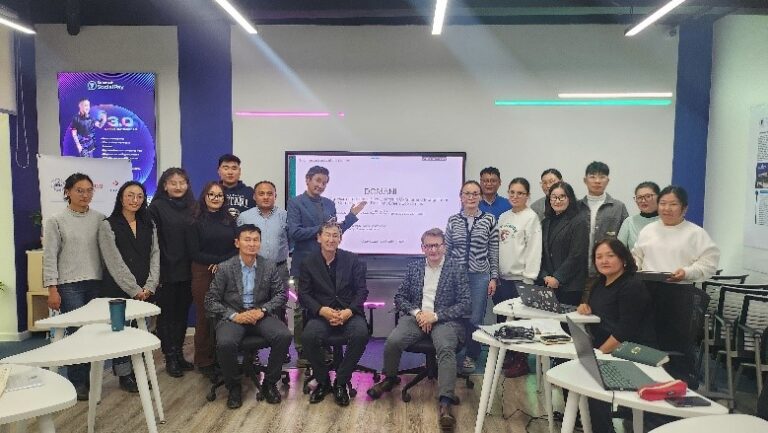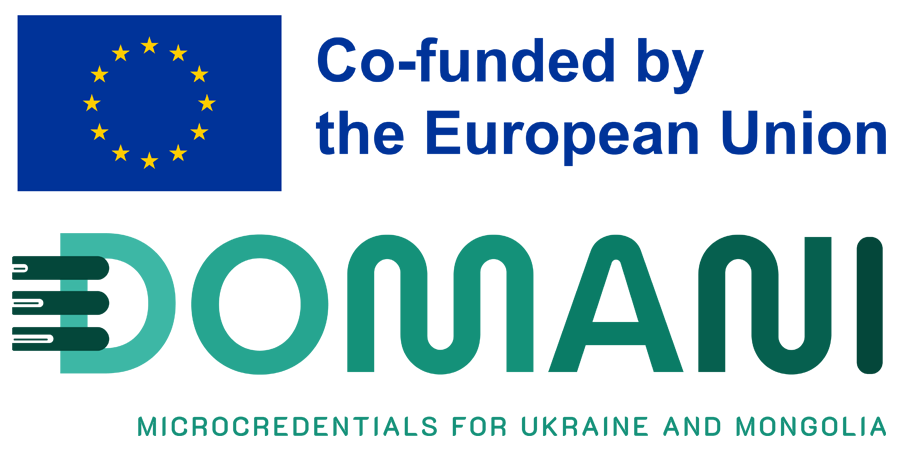A new project, which is funded by ERASMUS+ CBHE program, entitled “Developing Micro-Credentials Ecosystems in Ukraine and Mongolia for Competitive and Resilient Green Economies – DOMANI” has launched in November 2024. This project will implement for 3 years.
Main objective is to take stock of organizational, ICT and expert capacity of partner institutions in Mongolia and Ukraine, and develop flexible and inclusive learning opportunities by creating functional ecosystems for providing micro credentials to students and life-long learners.

Specific objectives of DOMANI project:
- To develop ecosystems for micro credentials provision at 4 PC HEIs, including the organizational, educational policy learning, ICT aspects, student mentorship and engagement with labor market actors, to ensure uninterrupted access of students and Lifelong Learners to the competences they require, to ensure flexibility of learning pathways, and to support challenge-based education.
- To develop regulatory proposals for micro credentials provision in MN and UA based on the principles and best practices of the European Educational Area, and accounting for the experiences of DOMANI partner HEIs and national contexts.
- To develop shared DOMANI Joint Learning Platform & online training services of the new generation for qualitative improvement of the education process & academic workflow support among universities & stakeholders across the PCs & EU.
- To develop new and upgrade existing micro credentials courses as well as challenge-based modules for students and LLLs covering DOMANI cross-cutting themes addressing green transformation in PCs as well as war resilience and post-war recovery in UA.
To develop capacity for academic mobility, shared experimental facilities and joint curriculum development and research by PIs & beyond.
In total, 12 institutes, including higher education and professional NGOs from 5 countries are participating in this project. Please, visit “Partners” page for more information.


Reported by: Altansukh Ochir, National University of Mongolia

